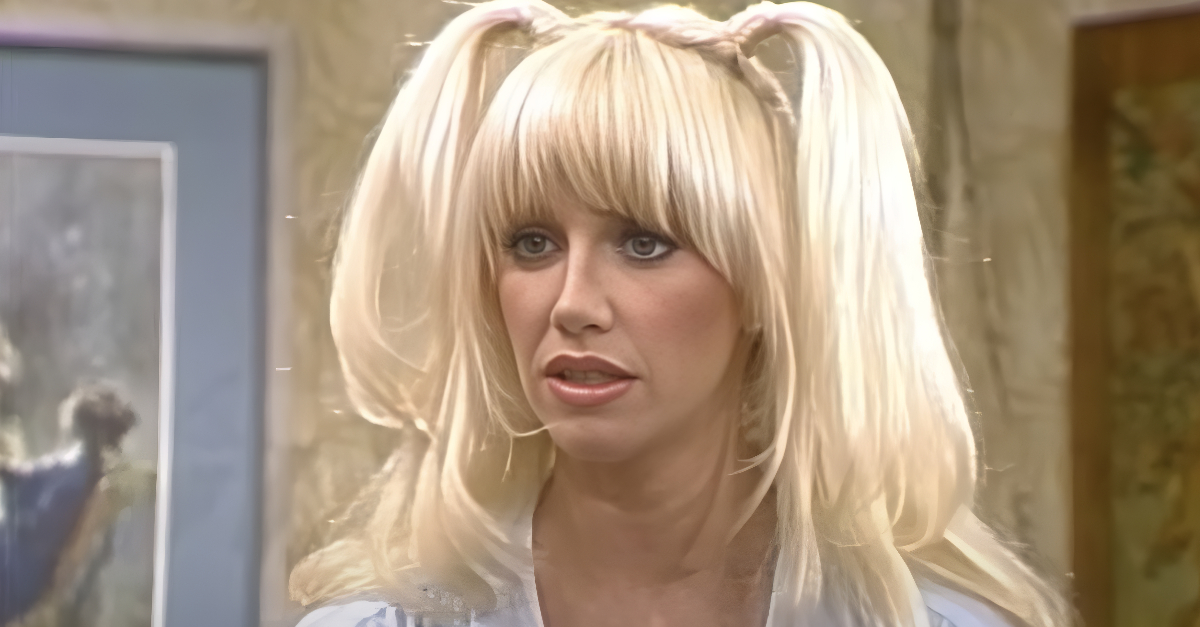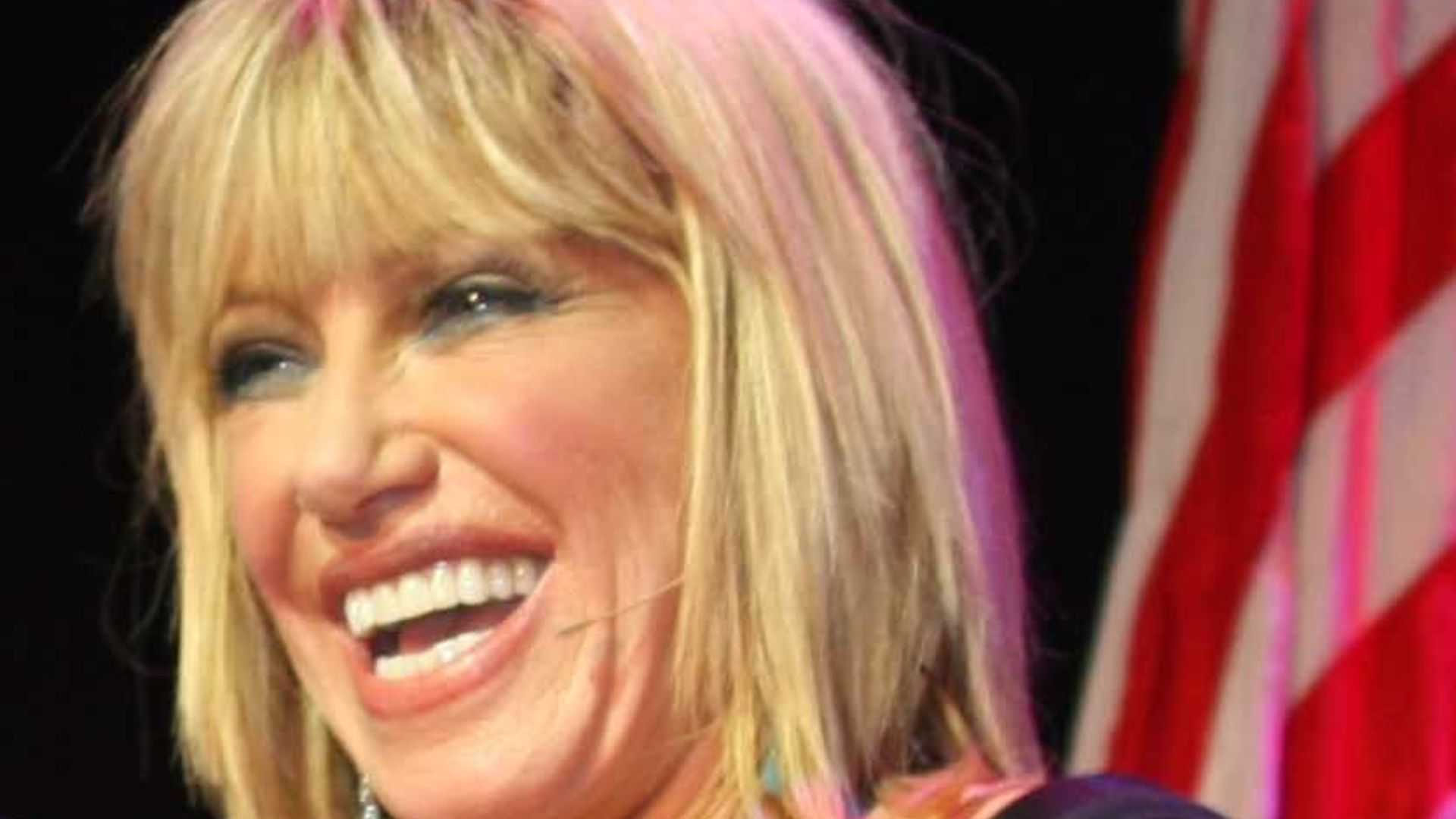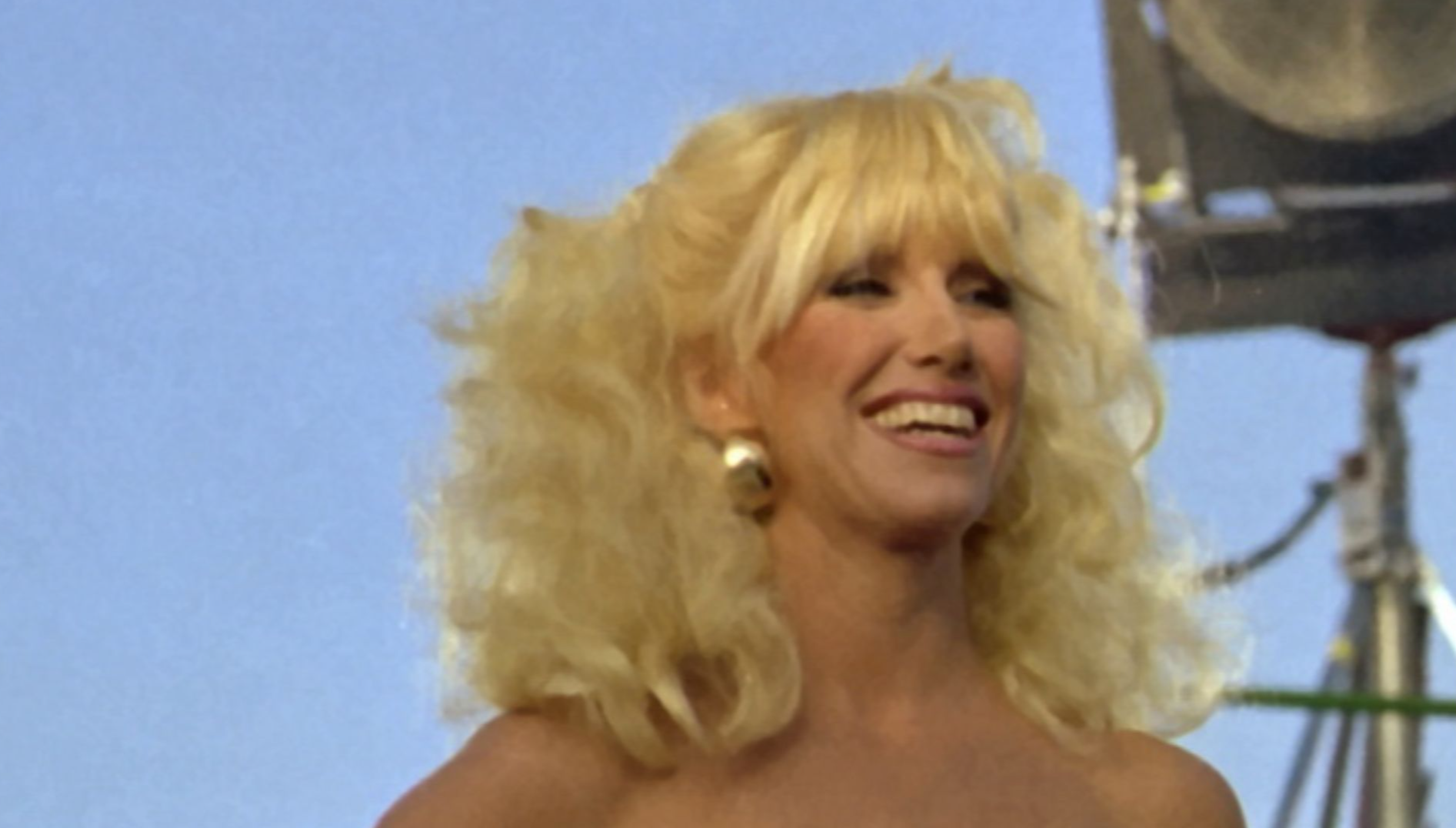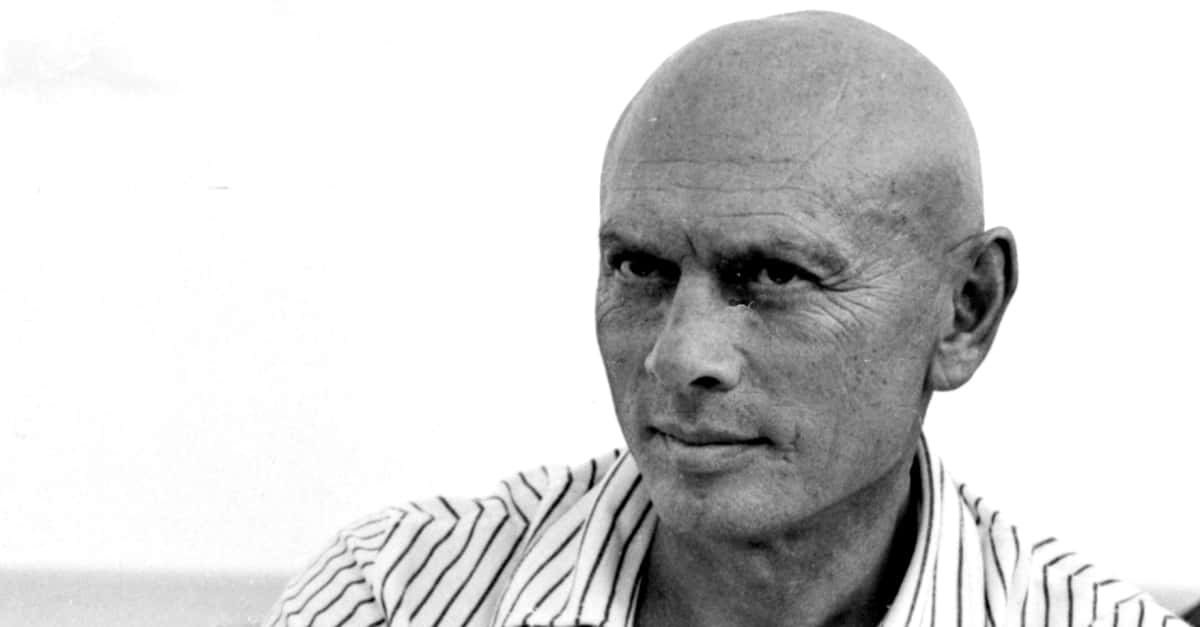A Household Name, A Hidden Battle
In 1977, Three’s Company turned Suzanne Somers into a household name. Her Chrissy Snow was bubbly, blonde, irresistibly funny—and viewers adored her. But while fans laughed, trouble brewed off-camera. And in 1980, Somers’ bold stand for equal pay would upend her career forever—but not before she had to endure one more brutal and demeaning season on the show.
Before the Breakthrough
Somers wasn’t an overnight star. She worked as a model, game-show prize presenter, and bit-part actress in the early 1970s. One of her earliest claims to fame was a tiny role as the blonde in the Thunderbird in American Graffiti. By the time Three’s Company came along, she had been hustling for years.
The Show That Changed Everything
Three’s Company wasn’t just a sitcom—it was a cultural phenomenon. By its second season, the series was pulling in 20 million viewers a week. In 1977–78, it ranked #3 on television, and two years later it was #2 in America. For ABC, it was a gold mine. For Suzanne Somers, it was the role of a lifetime.
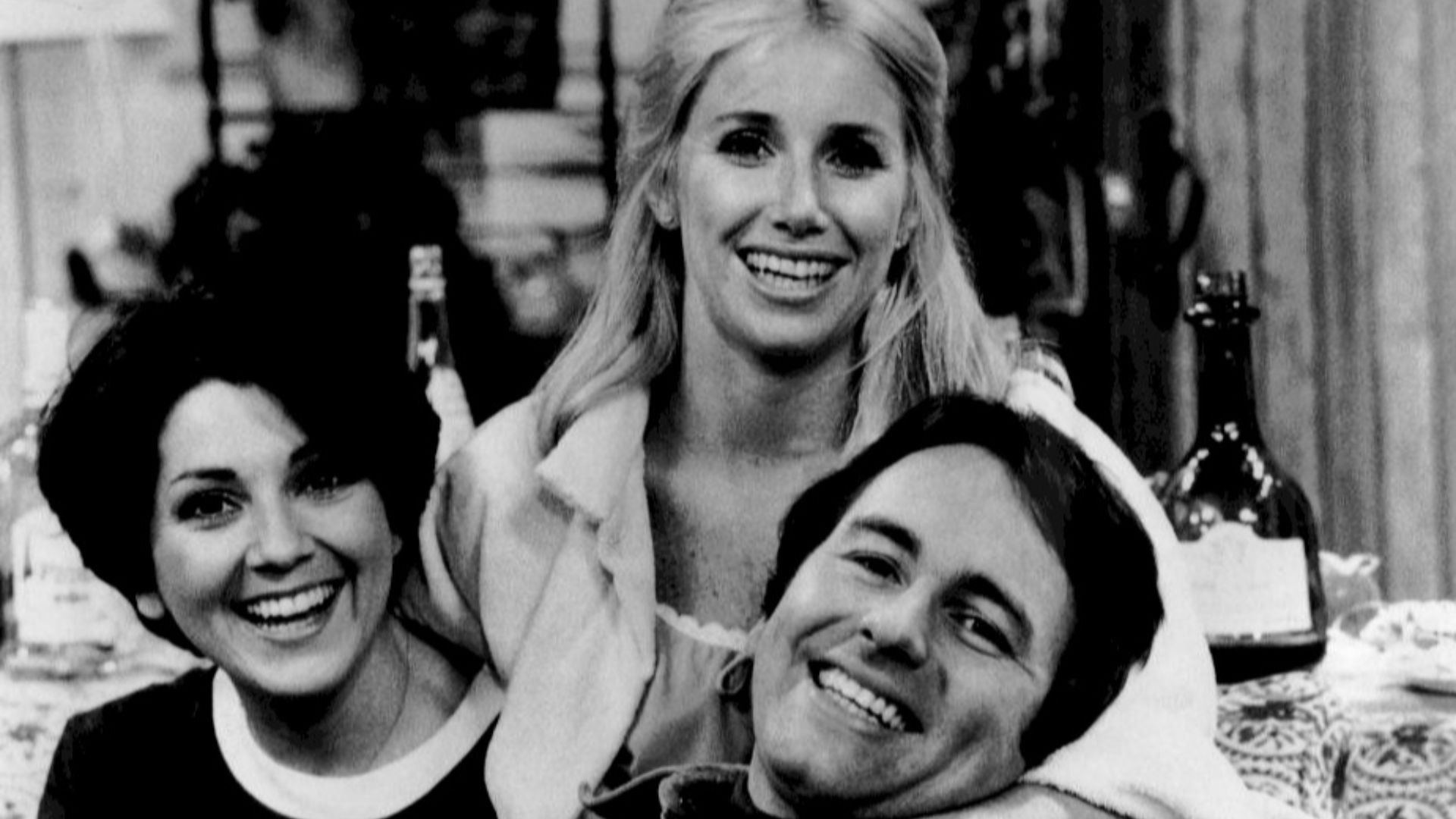 ABC Television, Wikimedia Commons
ABC Television, Wikimedia Commons
Chrissy Snow: More Than a Dumb Blonde
Chrissy Snow was written as the classic ditzy blonde, but Somers gave her warmth and comic rhythm that made the character irresistible. With a single pause or a raised eyebrow, she could steal a scene. To fans, Chrissy wasn’t a joke—she was the heartbeat of the show.
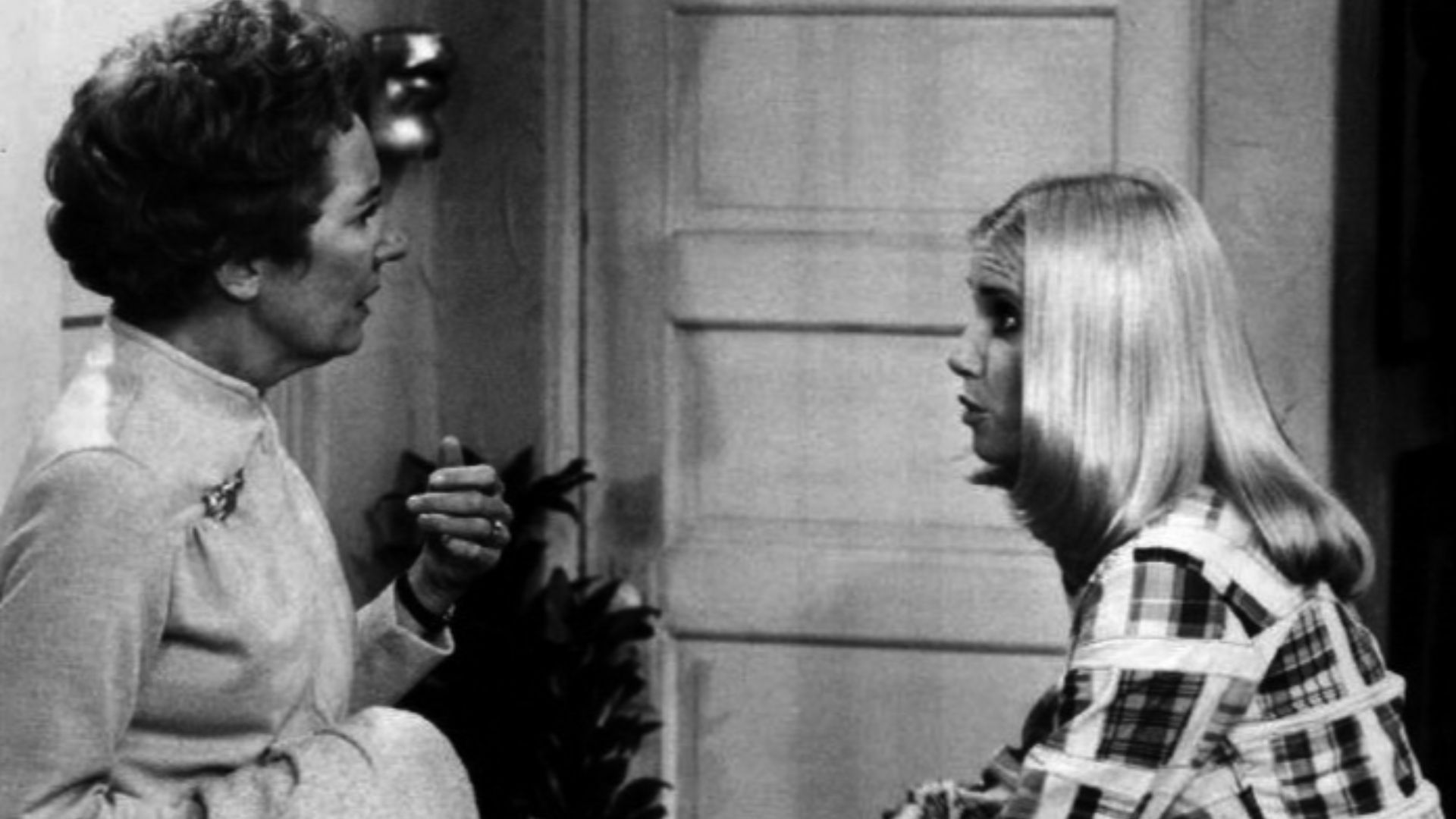 ABC Television, Wikimedia Commons
ABC Television, Wikimedia Commons
A Star Paid Like a Sidekick
At the start, Somers pulled in about $3,500 a week, and she was “thrilled” just to be part of the hit. But by 1980, John Ritter was banking $150,000 per episode, while she was stuck at $30,000. The pay gap was staggering—and she wasn’t about to let it slide.
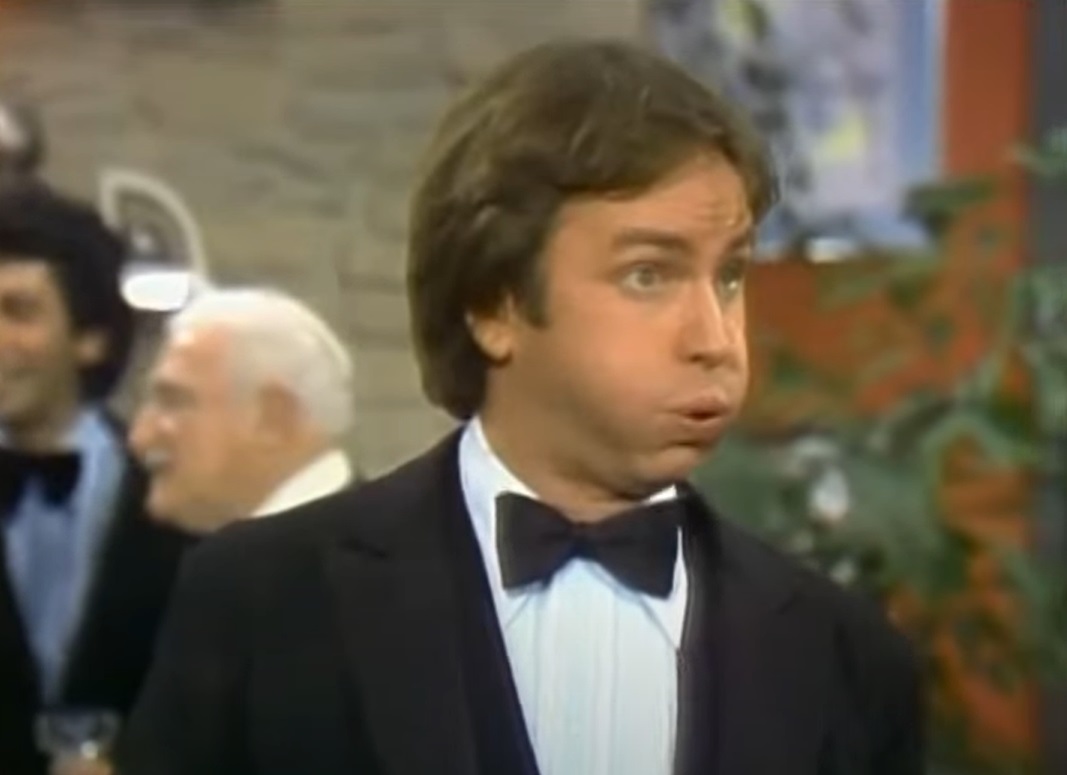 ABC, Three's Company (1977-1984)
ABC, Three's Company (1977-1984)
The Bold Ask
With the show riding high, Somers and her husband/manager Alan Hamel decided it was time to renegotiate. She asked ABC for $150,000 per episode, matching Ritter’s salary. Years later, she said: “I was on the number one show and had the highest demographics of any woman in television, and yet all the men were being paid 10 to 15 times more than me.”
The Chilling Warning
Instead of negotiating, the network pushed back. They offered only $5,000 more per episode. Then came the threat. Hamel remembered a network insider saying: “They’re going to hang a nun in the marketplace, and Suzanne Somers is going to be it.”
Season 5: The Punishment Begins
When Season 5 aired, Somers’ role was cut down to almost nothing. Chrissy often appeared only in short phone-call scenes, filmed separately from her co-stars. For viewers who tuned in for Chrissy’s antics, it was jarring—and for Somers, it was humiliating.
 DLT Entertainment, Fremantle, Three’s Company (1977)
DLT Entertainment, Fremantle, Three’s Company (1977)
Alone on Set
The isolation went further. Somers later said security guards escorted her to and from the set to ensure she never crossed paths with Ritter or DeWitt. The woman who had once shared the spotlight with her co-stars was now treated like an outsider—watched, separated, and silenced.
 ABC Television, Wikimedia Commons
ABC Television, Wikimedia Commons
The Smear Campaign
The press piled on. “The smear campaign they put out on me was, ‘She’s greedy,’ and ‘Who does she think she is?’” Somers recalled. Tabloids painted her as difficult, and the studio was happy to let the story stick. What had been a business negotiation became a public shaming.
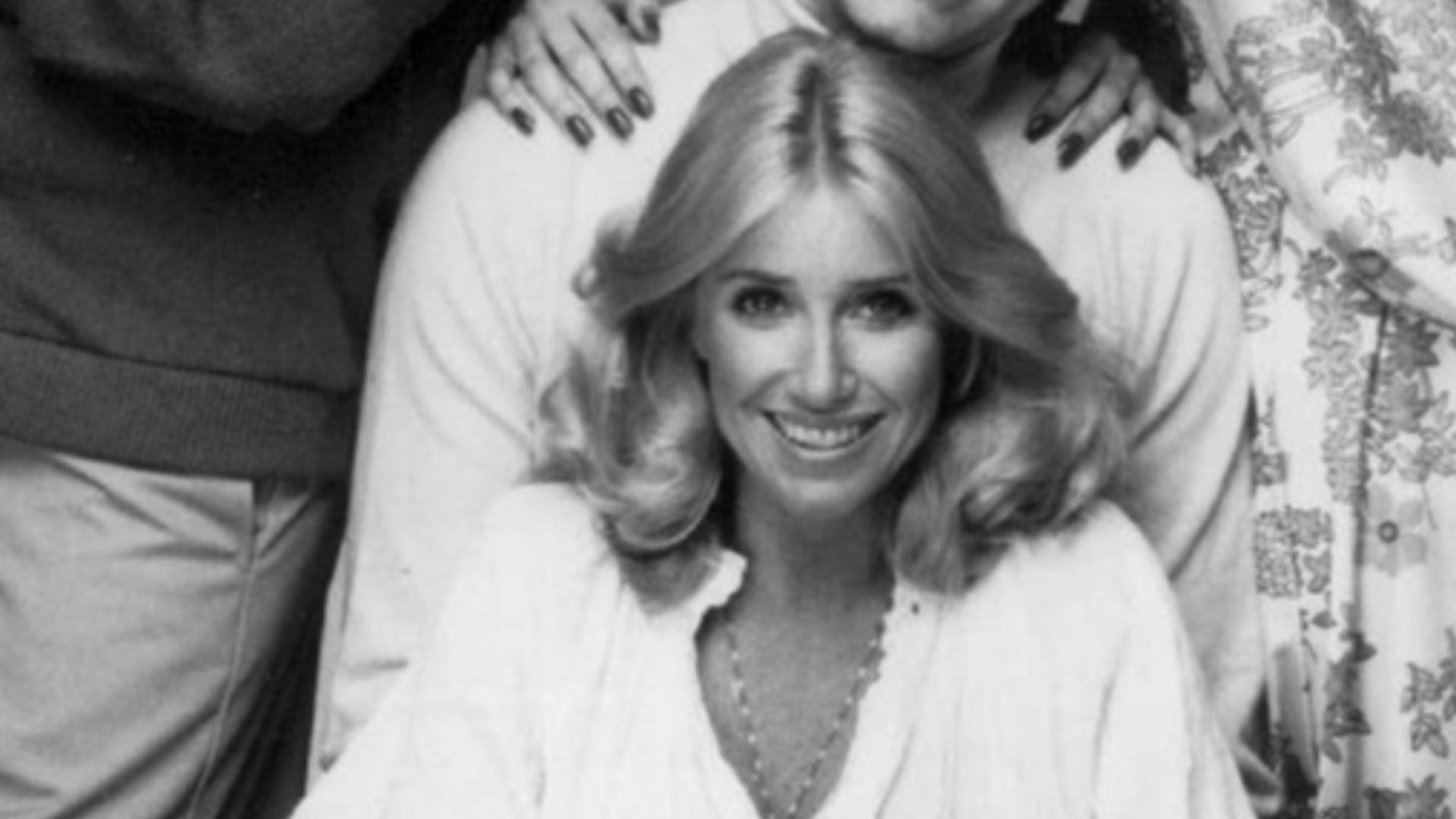 ABC Television, Wikimedia Commons
ABC Television, Wikimedia Commons
The Official Exit
By mid–Season 5, Somers was fired. Chrissy Snow was erased and replaced by her “cousin” Cindy. Somers later admitted: “Being fired from Three’s Company took a lot of work from me … to not be angry.”
 ABC television (US) public relations, Wikimedia Commons
ABC television (US) public relations, Wikimedia Commons
What Remains Unclear
At the time, ABC claimed Somers’ reduced role was due to health problems, including a back injury. Somers always maintained the real reason was her demand for equal pay. Lawsuits and arbitration followed, muddying the record. But one thing was clear: Chrissy Snow was gone for good.
 ABC Television, Wikimedia Commons
ABC Television, Wikimedia Commons
Fallout With Co-Stars
Her firing didn’t just end her role—it ended her friendships. Somers and Joyce DeWitt didn’t speak for decades. “She never called me, and I never called her,” Somers later said. The bond forged in sitcom stardom was shattered by bitterness.
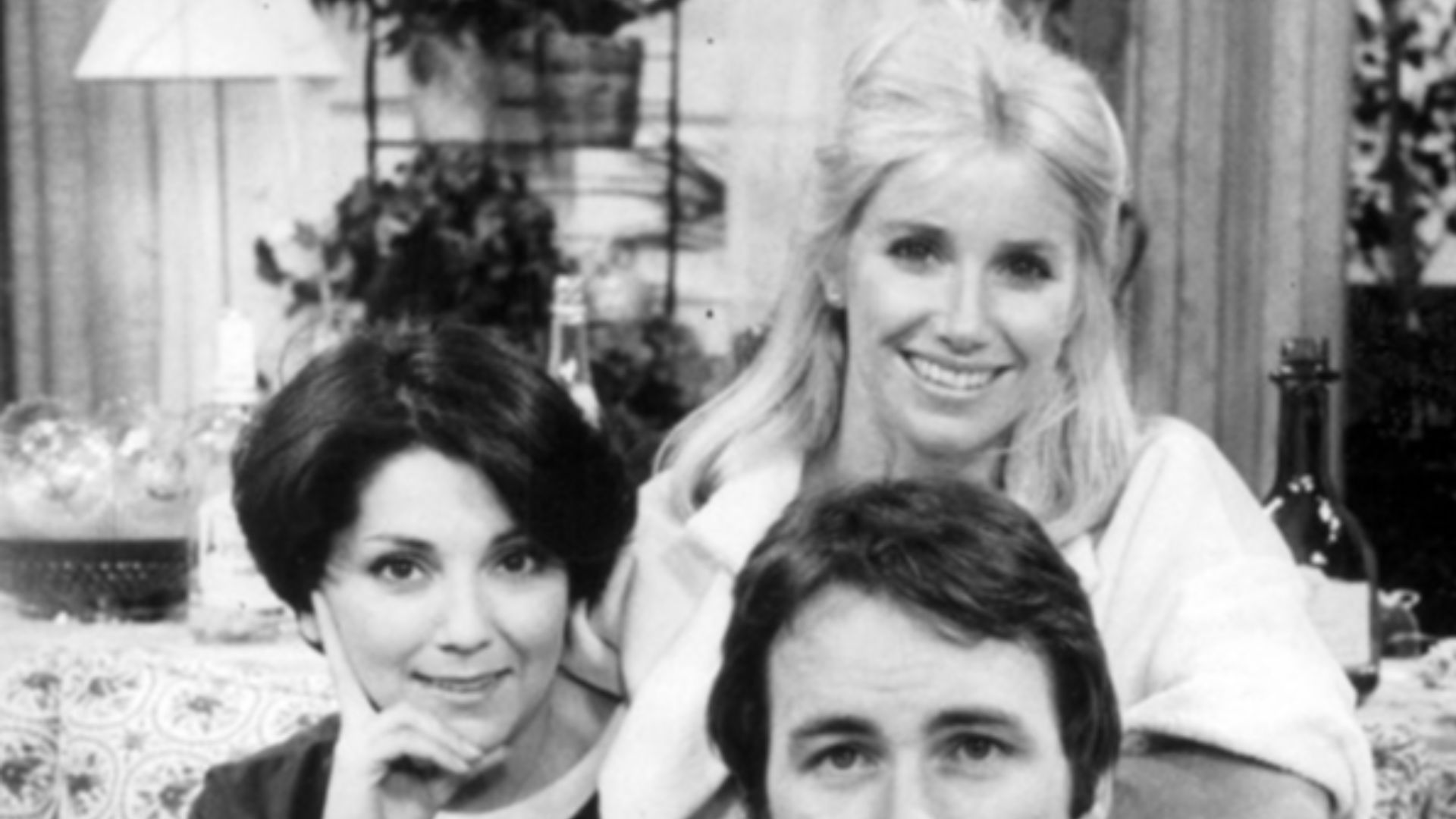 ABC Television Uploaded by We hope at en.wikipedia, Wikimedia Commons
ABC Television Uploaded by We hope at en.wikipedia, Wikimedia Commons
No Contact for 30 Years
For three decades, Somers and DeWitt avoided each other. “It was like a divorce where nobody talks,” DeWitt admitted later. Fans often asked why the women never reunited—but the rift was simply too deep.
The Reunion at Last
In 2012, Somers and DeWitt finally sat down together on Somers’ online talk show. They laughed, cried, and hugged. “I’m so glad we reconnected,” Somers told her. DeWitt agreed: “We allowed ourselves to be divided. And it’s over.” The reconciliation came 30 years after their split.
 Three's Company Reunion with Suzanne Somers and Joyce DeWitt, CafeMom Studios
Three's Company Reunion with Suzanne Somers and Joyce DeWitt, CafeMom Studios
Career in Limbo
After leaving Three’s Company, Somers faced a Hollywood freeze-out. She was labeled “trouble” and struggled to land new acting jobs. Her refusal to back down had cost her the career she loved—but she wasn’t done reinventing herself.
Reinventing Herself in Vegas
Somers turned to Las Vegas, where she became a headliner. Her nightclub act mixed comedy, singing, and storytelling, drawing big crowds. She proved she could still command an audience—even if Hollywood tried to shut her out.
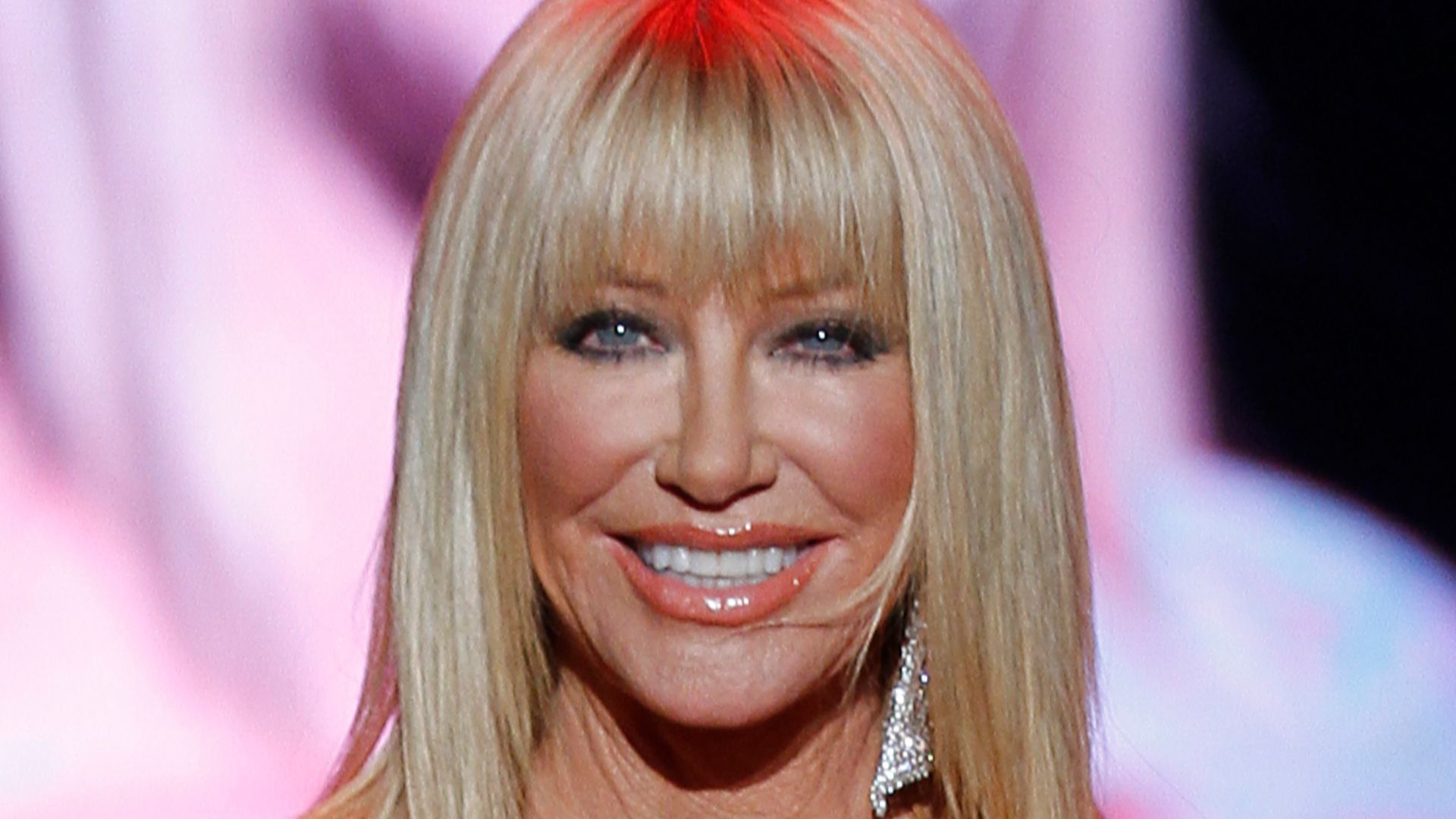 The Heart Truth, Wikimedia Commons
The Heart Truth, Wikimedia Commons
Building an Empire with the ThighMaster
Her biggest reinvention came with a piece of plastic exercise equipment. The ThighMaster made Somers a mogul. With her face on infomercials, she sold millions of units worldwide. Once branded as “trouble,” she was now laughing all the way to the bank.
The Silence That Followed
Her stand had chilling ripple effects. “Not one woman asked for a raise for eight years … until Roseanne came along,” Somers explained. For nearly a decade, her fate was a cautionary tale whispered during every contract negotiation.
Rethinking Chrissy
Years later, Somers defended her most famous role. “She had a moral code … people loved her because she was lovable,” she said. To Somers, Chrissy wasn’t a dumb blonde—she was a character with heart, and she was proud of what she created.
 DLT Entertainment, Fremantle, Three’s Company (1977)
DLT Entertainment, Fremantle, Three’s Company (1977)
Why Her Stand Still Matters
Hollywood still struggles with pay inequity. Jennifer Lawrence, Michelle Williams, and others have echoed the same complaints decades later. Somers’ fight in 1980—though costly—was one of the earliest and loudest calls for equal pay in television.
Courage and Consequence
Somers herself summed it up: “Being fired from Three’s Company made me angry … but it also made me strong.” She lost her dream role, her co-stars, and years of TV work. But she refused to disappear—and proved she could thrive on her own terms.
The Legacy of Suzanne Somers
When Suzanne Somers died in 2023, tributes poured in. Fans remembered Chrissy Snow’s laugh, but many also remembered the actress who dared to demand fairness at the height of her fame. She paid a steep price for asking—but she asked. And that courage is why her story endures.
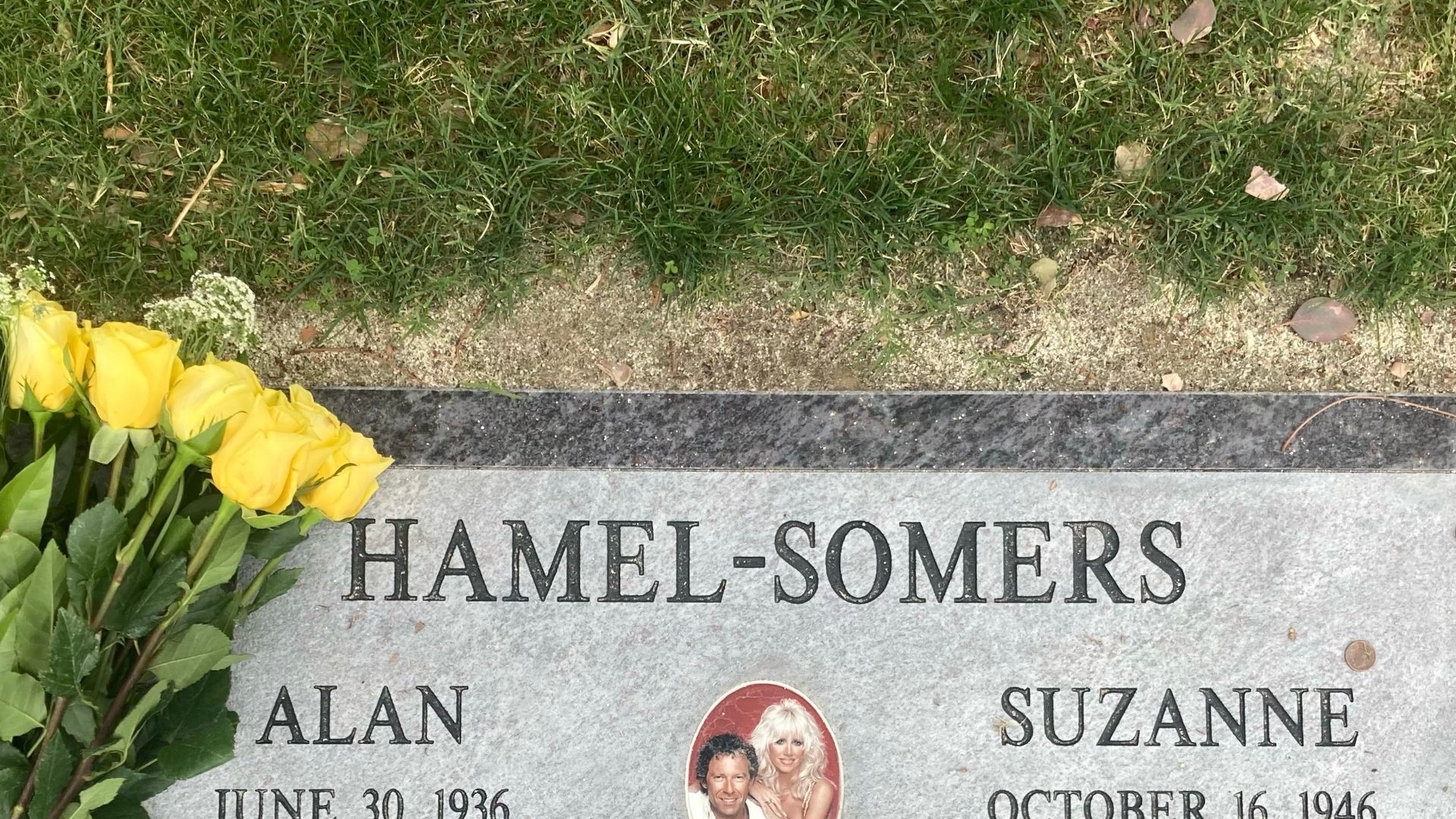 Frankenfile, Wikimedia Commons
Frankenfile, Wikimedia Commons
You Might Also Like:
These 44 Shows Let Their Main Characters Slip Out Of Focus
The Long Career and Too-Short Life of TV’s Fugitive, David Janssen

